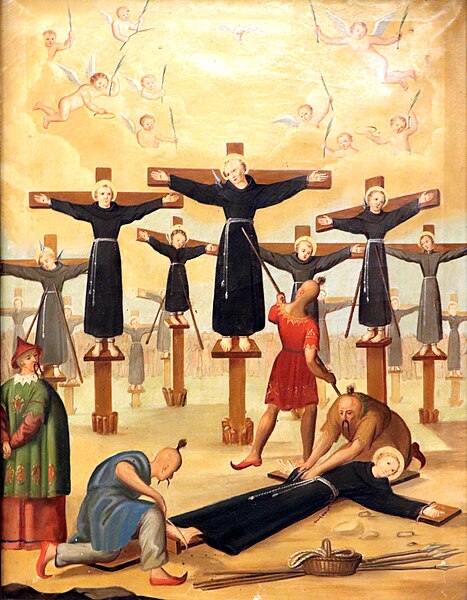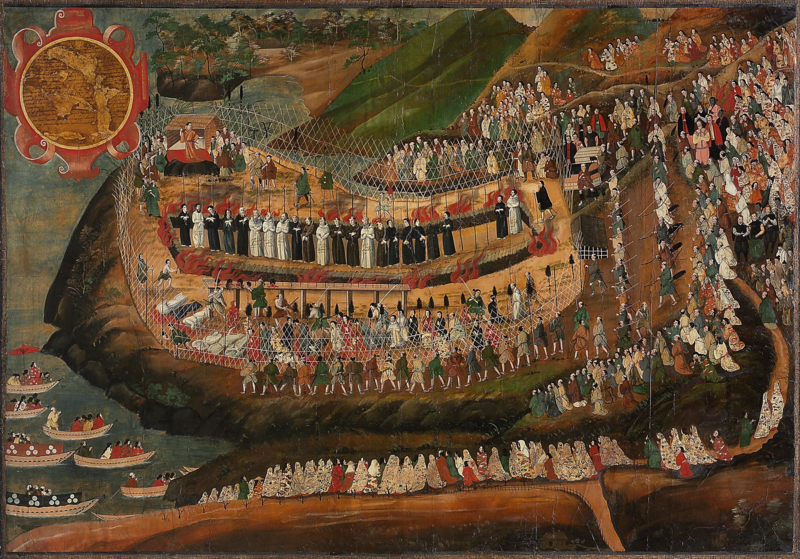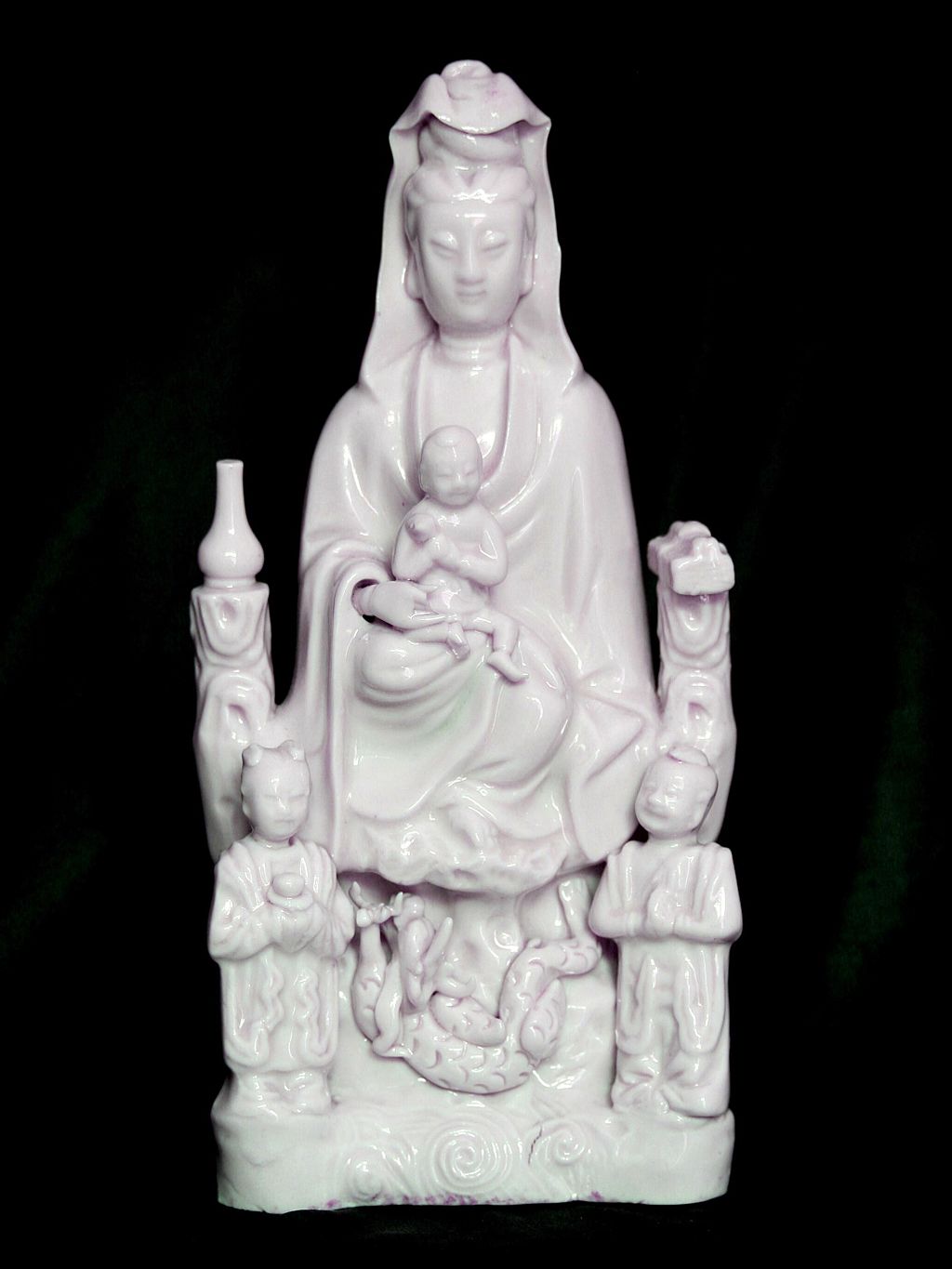If you’re going to accuse a gang of spirit mediums of practicing a banned religion on the down low, you have to prove they’re actually members of that religion. But what if your only understanding of how this religious group worships comes from stories about outrageous magical villains?
Featured image: A statue of the Virgin Mary and child disguised as a statue of Kannon, the bodhisattva of compassion and mercy. Statues like this were used by actual Christians during periods of persecution–but our criminals in this episode may not have used or even known about them. (Image source)

A writing box from the early 1600s showing Portuguese visitors to Japan, with a Jesuit priest on the right. (Image source)

A Jesuit with a Japanese nobleman in the early 1600s. (Image source)

A fumi-e ceremony designed to expose Christians; real Christians were believed to be unwilling to tread on an image of Jesus or the Virgin Mary. (Image source)
Fumi-e at the Museum for Hidden Christians of Japan. (Image source)

A painting from Prague of Christian martyrs being crucified in Nagasaki. (Image source)

Another painting of the same event in Nagasaki in 1622, known as the Great Genna Martyrdom. (Image source)

